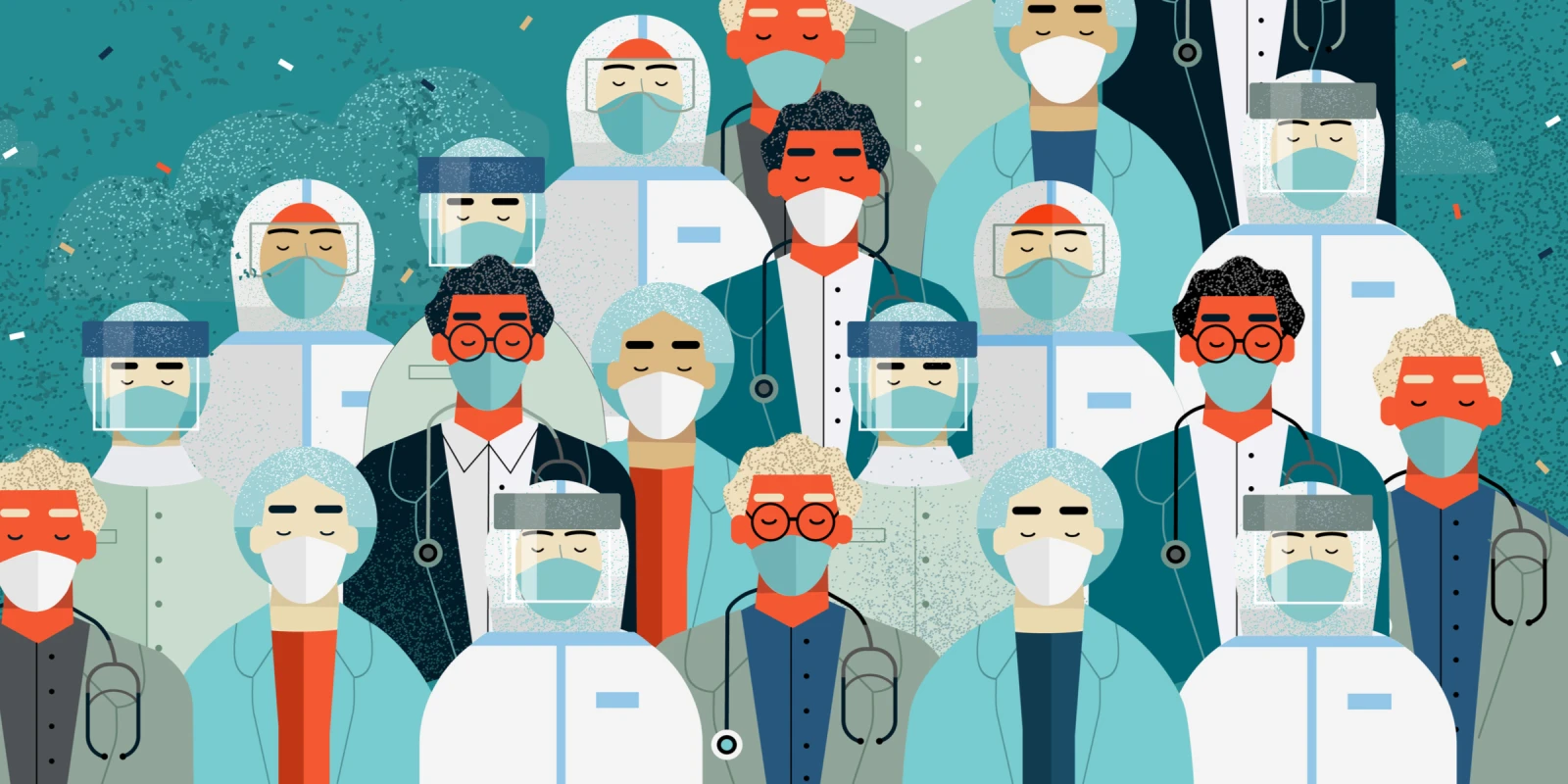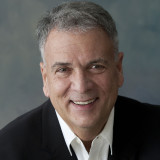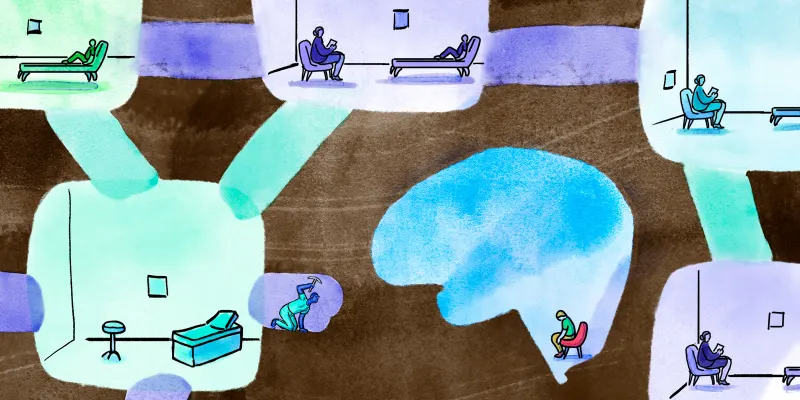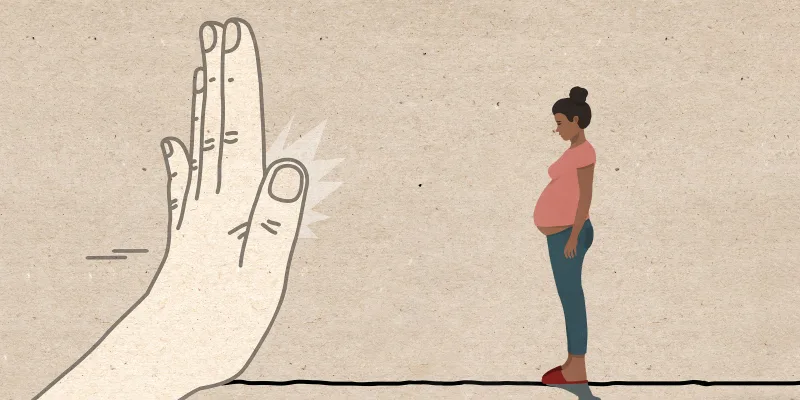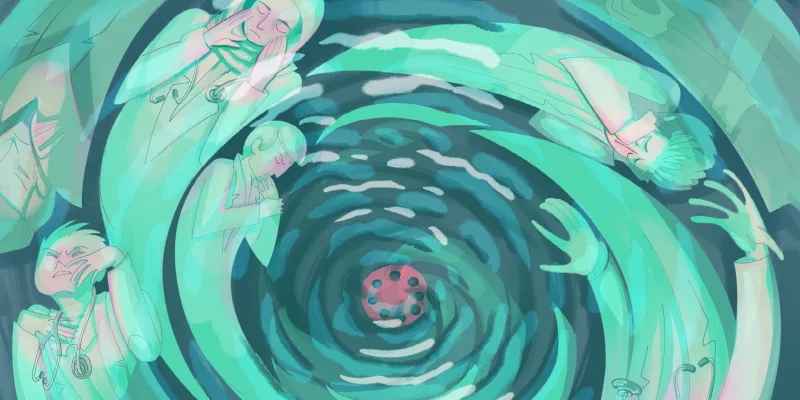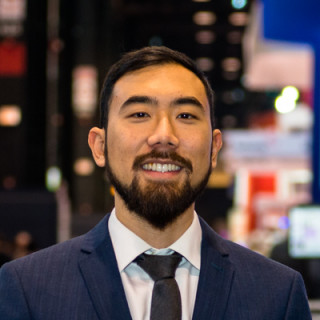A practicing colleague recently asked me: “If we’re such heroes now, what were we before?” The short answer is something the ancient Romans understood:
Dudus, sic transit gloria – Dude, all glory is fleeting.
But I think the right answer is “servants.” Well-educated, reasonably-to-highly remunerated servants, but still servants nonetheless. We serve the public, the patients, the greater good. To have to be a hero every minute of every day is exhausting. Ask a first responder or anyone who works in an ICU or an ED. In the course of our service, we are very often called upon to be selfless — but rarely heroic. The term itself suggests accepting some personal risk to life and limb, something we usually don’t consider part of the job description when we enlist.
It’s been a very long time, longer than most of us can remember, since death has been so much with us and around us.
Not an insignificant number of these deaths were our colleagues or coworkers — making them casualties of war, killed in action, making the ultimate sacrifice, giving the last full measure. And for those raised on "The Lion King," I have a spoiler alert: Life is not a circle.
Life is a line going in one direction, our existence coldly plotted with ordinate and abscissa. But we are provided with some Einsteinian wormholes, relatively speaking, in the form of memories. Through these portals, we can travel backward to previous points on that line. These metaphysical forays often allow us to make some greater sense of our current situation, of our present position on the grid.
I fell into one such wormhole recently while waiting in line for the COVID-19 vaccine. While gazing at the multitude who had assembled in the pre-dawn darkness hoping to take arms (literally) against a sea of viral particles, I had abundant time to reflect on our current notions of heroes and healers.
First stop was the basement of our little Catholic church after Sunday Mass in 1964. I was standing in a line, waiting to get vaccinated — back then it was against the dreaded poliovirus. I can still picture the sugar cube, with its diffused dot of red dye, in the bottom of a thimble-sized medicine cup. I remember that I was terrified of getting polio. I had nightmares about ending up in an iron lung, something you saw pictures of in the papers and which were needed for lots of kids you didn’t know. Getting the polio vaccine was like a repetition of receiving Holy Communion — just another road to salvation. I gave no thought as to who developed it or how it came to be. All my heroes back then played baseball.
But on my next stop, I came face-to-face with a hero of that campaign 25 years later, this time as a resident. I was wearing a wrinkled scrub suit and standing beside the bed of an elderly patient who happened to be the developer of the very vaccine I had swallowed in that church basement.
I told him about taking his vaccine a quarter-century earlier. The poliovirus, he told me, was simply a "scientific problem" that he and other scientists went about their work solving. He seemed more than a little surprised that I even knew who he was and what he had done. "Eh. Ancient history," he said with a shrug. He never mentioned anything about being a hero or helping to save the world without profiting a dime.
We’re surrounded by heroes at the moment. You have to try hard somedays to find somebody who isn’t one, because the times call for bravery as well as sacrifice on a scale not often seen. But will those who are today’s heroes miss the attention and adulation when it’s over? I was a working doctor for almost four decades but I don’t think I ever saw myself as a hero, so I don’t think so. Although I do believe those physicians, nurses, medical scientists, and professionals who are working today have earned that title. I also think, however, that when the trumpets fade, what these heroes will miss is the simple recognition that their life’s work is directed, often just as tirelessly, at doing good for others. That they will again find themselves in a world of, “Sure, but what have you done for me lately?” That the hospital administrators who publicly tout “their” heroes will swiftly return them to spreadsheet data points once they’ve milked the PR cow dry.
It is, perhaps, simply an occupational hazard to be taken for granted. But when this viral threat is “ancient history,” there will still be a pediatrician who leaves her own babies to take care of another’s; a respiratory therapist who adjusts a hated BiPAP mask to help stave off intubation; an overextended ICU nurse who takes time he or she doesn’t have to hold a hand or dry a tear.
Heroes shine their brightest when the lights are low and no one is looking.
When we again live in uninteresting times, we should not forget to honor, by remembering their names and their contributions, those who made the recovery of our entire species a reality. They won’t be returning as conquering heroes, feted with ticker tape parades, because they never left. And someday they, too, will be surprised when a young doctor stands at their bedside and knows their name and what they accomplished. And they will not say they were heroic.
While I was reflecting, the wormhole whisked me back into the present-day vaccination line. It began to move, and before I knew it, I was rubbing my deltoid and thanking the nurse who inoculated me for volunteering her time and her expertise. I didn’t complain about the wait, having once been in a longer line to get a coveted Beanie Baby for my daughter.
We live in a world where it’s easy to be hailed a hero. But we also live in a time where many have been called upon to actually be heroic. Dr. Anthony Fauci got his own baseball trading card. I don’t believe he asked for it. That’s OK – in saying what he believed, in standing up for science over expediency, in putting the collective patient and the greater good first, I think he deserved it. But on that card is really the face of everyone in health care who is still grinding in the current down-to-the-final-out Game 7 of a public health World Series. Let’s make sure it doesn’t go into the shoebox that gets thrown out.
What "occupational hazards" do you feel you face in medicine? Share in the comments.
Daniel J. Waters, DO, MA practiced cardiac surgery for thirty years and served as a Director of Medical Education for 20 before retiring in 2019. He is now a full-time author and novelist. Dr. Waters was a 2019-2020 Doximity Fellow and is a 2020–2021 Doximity Op-Med Fellow.
Click here to see more perspectives on COVID-19 from the Doximity network.
Click here for up-to-date news about COVID-19 on Doximity.
Image: Ardea-studio / shutterstock
